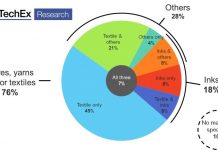 The New York Times has a brief article looking at the future of e-book devices, and their technological siblings the tablet computer.
The New York Times has a brief article looking at the future of e-book devices, and their technological siblings the tablet computer.
It includes quotes from Nicholas Negroponte of One Laptop Per Child, and Nick Colaneri of Arizona State University whose Flexible Display Center is working with the military to develop flexible displays for battlefield use.
The group Mr. Negroponte heads, One Laptop Per Child, has developed a slate computer set to be released in 2012 that will cost less than $100. Plastic and, he said, unbreakable, the computer will resemble the iPad and will “use so little power you should be able to shake it or wind it up to give it power.”
Colaneri notes that there is more to making flexible displays than just making the screen bend, but expects designs to start to make it to market within three to five years.
There’s also some talk from Clive Thompson, a technology columnist for Wired, about where e-books will go if “publishers are smart—and readers are lucky”. He sees e-books becoming more collaborative, with readers gaining the ability to highlight and share favorite passages
In other words, e-books will become social experiences, with sharing among readers and even the ability to see the most popular passages as other readers highlight and comment in real time. “E-books will display their social and informational life,” Mr. Thompson said. “On which pages do readers most linger? What are the world’s best comments for this passage?”
I only see a couple of problems with that scenario. First off, it assumes that publishers are going to be smart. I’ve seen plenty of examples, over the last few years, of publishers trying to do everything they can to lock down their e-books rather than open them up. Many, perhaps most applications for reading commercial e-books don’t allow copying and pasting at all—since someone could copy and paste the entire book to get around the DRM.
And it also assumes that people are going to be happy about other people being able to find out how and what they read. There are already plenty of people who don’t like the highlighting tracking that Amazon is doing now, after all.
The piece closes with
Mr. Thompson foresees e-book publishers offering single chapters of some books for 99 cents each, the price for which iTunes sells single songs today.
Now that’s just silly. Who on earth would buy a single chapter of a book? You can buy single songs for 99 cents, and might even want to, because a song is a complete work in and of itself, and if there’s only one or two good songs on an album of stinkers then it’s common sense just to buy those songs.
But what satisfaction is any reader going to get out of buying one chapter from a longer book? If it’s a short story from a story collection, maybe, but most books aren’t story collections. I really don’t see the point.

































The only real benefit I could see to a chapter for $.99 is that you could read the first couple of chapters and decide if you wanted to read the rest. There are a few books that I’ve only gotten a few chapters into and decided that it wasn’t for me.
Still, it wouldn’t be exactly cost effective unless the eBook is $15+.
Selling by chapter would make sense for many non-fiction books. A ‘how to’ in one category may be all you want or a travel guide for a particular country or city. I can think of thousands of examples. Imagine a teacher compiling coursework from many different books, picking a series of specific chapters from disperate sources to become a single ‘coursebook’ specific to his students’ needs.
If anyone wanted evidence that these people have absolutely no clue it is this nonsense about selling single chapters … LOL what a farcical idea.
All ebooks should have a free chapter for preview via the web as standard. Simple. Even non fiction. This is a chance for readers to sample the writer and his story/style, especially for new/emerging writers.
I’m sorry Paul – but your vista of the teacher is really really silly 🙂
Isn’t selling by the chapter just another way to serialize a book?
You guys live in a cave? One of the largest textbook publisher in the USA, Cengage, has been selling chapters of its textbooks for the last 3 years or so.
All right, I guess textbooks are another area where it might make sense, given that each chapter of a textbook generally covers a discrete subject and classes often don’t use all chapters from a given book.